Submitted by WA Contents
Grenfell Tower reimagined as monolithic black concrete memorial by JAA
United Kingdom Architecture News - Aug 09, 2018 - 05:28 20724 views
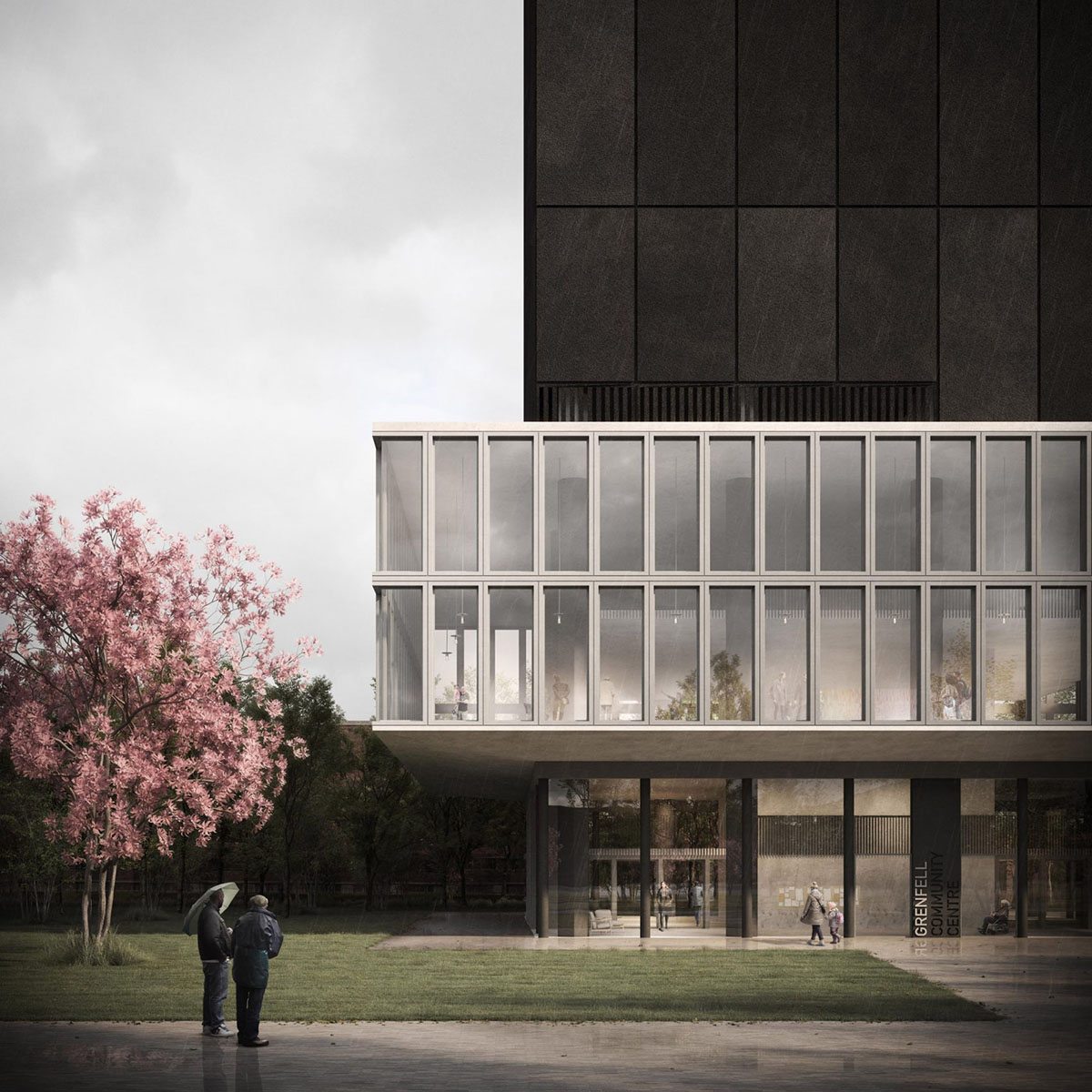
London-based architecture studio JAA has revealed its proposal for the speculative Grenfell Tower to transform the tower into a monolithic black concrete memorial dedicated to the victims of fire.
The renderings show that the architect retain the existing tower’s structure and encases it within a civic-scaled sarcophagus of 224 black concrete panels.
Named Grenfell Tower: in Memoriam, the proposal is developed to build a collective memory not to forget what happened at the site and to help the city learn from this tragedy, just like a child, the architects emphasized.
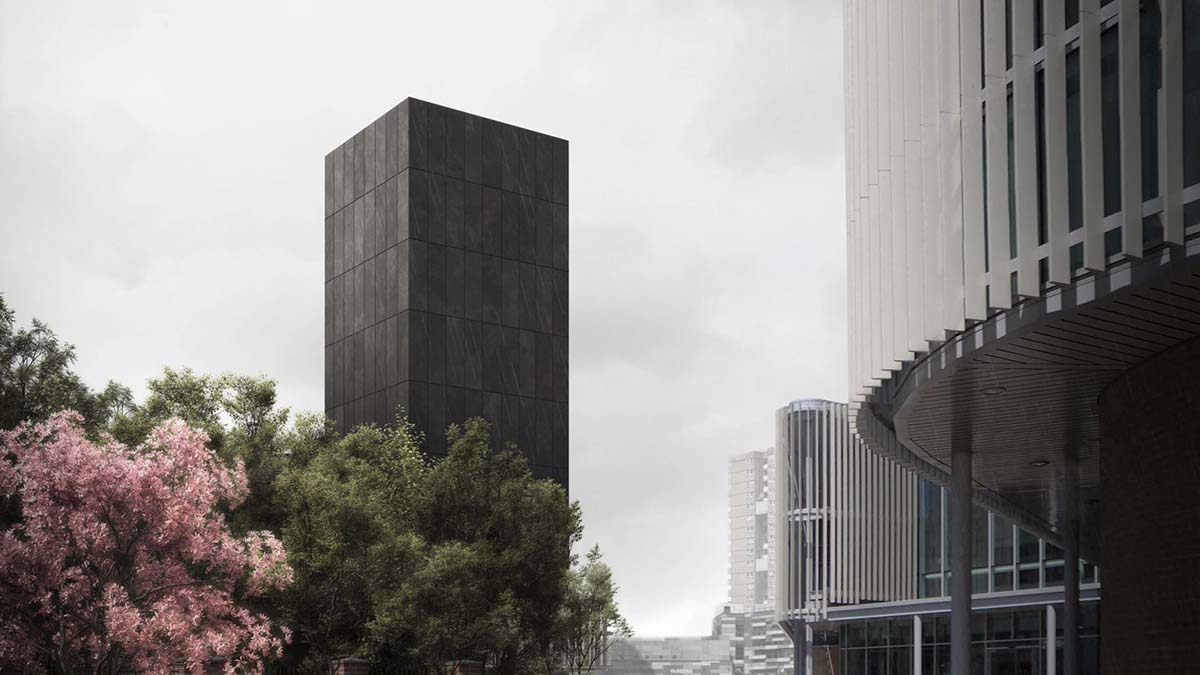
"Grenfell Tower: in Memoriam, the concept does not claim to be an answer but an alternative way of thing about the site and its new-found sanctity after disaster. The city needs its scars," stated JAA.
The Grenfell fire exploded at the 24-storey tower, next to Notting Hill, on June 14, 2017, and resulted in the death of 72 people. The fire first began in a kitchen of a fourth-floor flat and spread to the exterior of the tower.
In March 2018 the government released a document titled "Principles Governing Consultations on the Future of the Grenfell Tower Site" and stated that the site of the Grenfell Tower can be made ready for a memorial. But later, the Guardian Newspaper reported that the outer burned-out skin of the tower may be kept in place as a permanent memorial as "a source of anxiety for the bereaved, survivors and the local community."
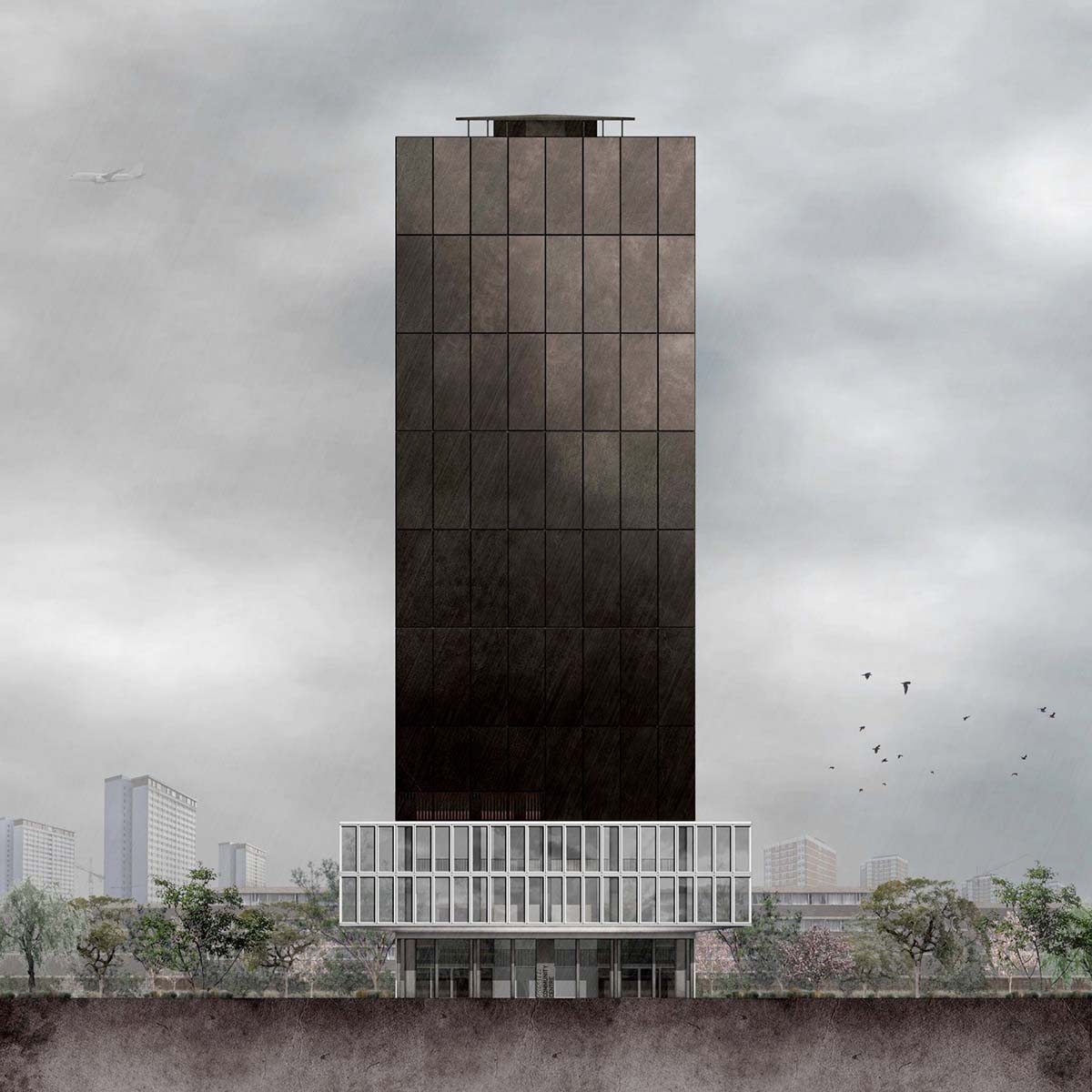
While the future of tower still keeping its uncertainty, JAA's proposal aims to remain the building envelope as part of the skyline, but differentiated from the similarly scaled blocks nearby by its lack of windows and unpunctured silhouette. It will stand in the city scape, part of it, but standing apart.
"This project does not claim to be the answer to the difficult conditions found in the aftermath of Grenfell, but instead offers an alternative way of thinking about the site (and others similar) and its new-found sanctity through disaster," said JAA.
"If we build over these individual spaces borne out of tragedy we will forget over time. And the city needs its scars; the city needs to remember. Because if we don’t, in the future we won’t only be discussing Ronan Point and Grenfell, but who knows how many other avoidable catastrophes."
According to their design scheme, at night, Flat 16 where the fire started, will be illuminated amongst the mass of shadow, a small gilded beacon, a quiet nightly narrator of the tragic event.
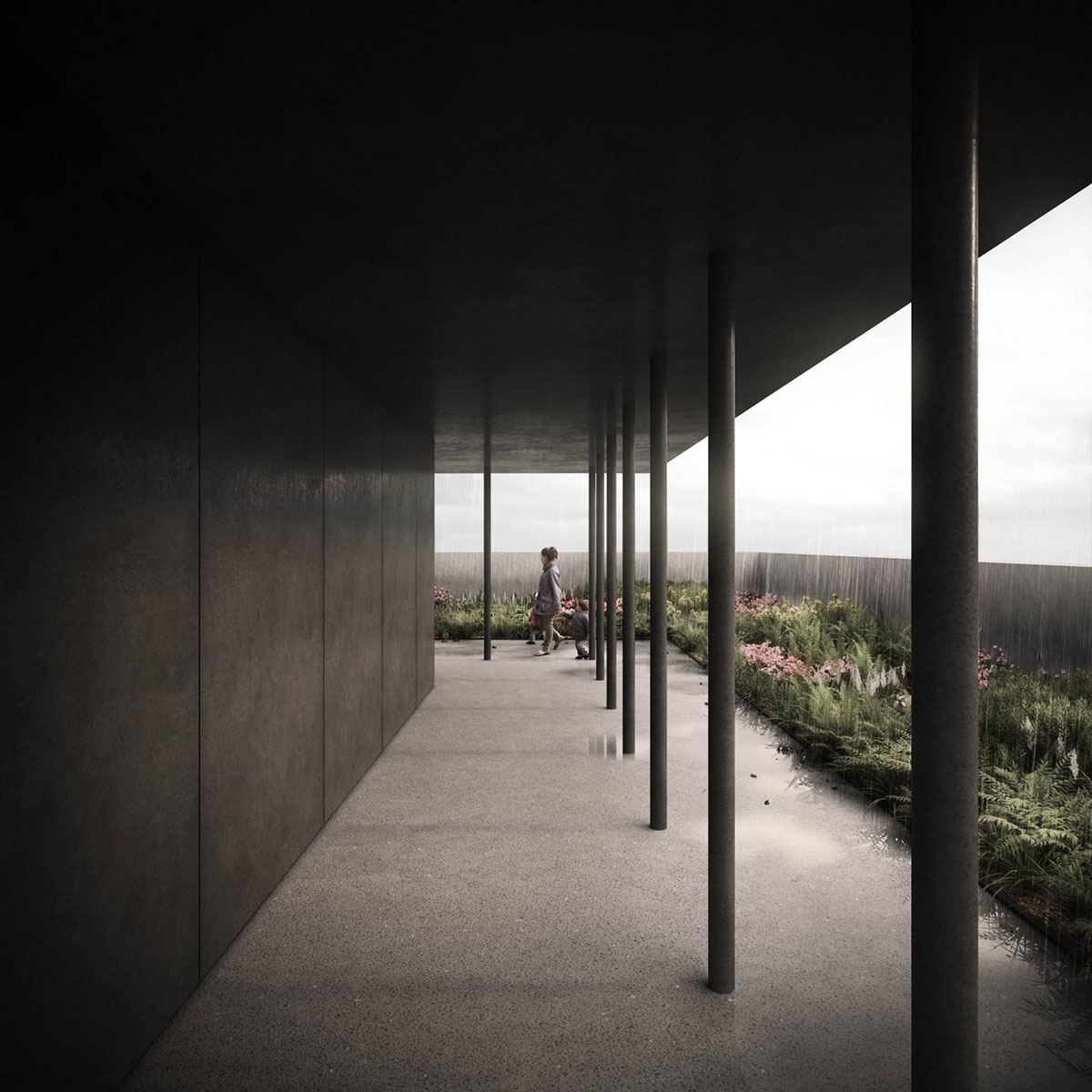
The rooftop will be made accessible to form a memorial roof garden. A perimeter of columns topped by a canopy in pared-back black concrete as per the monolithic tower below, act as a muted backdrop to contrast to the newly planted colours and swaying wild flowers on this new 25th storey open to the sky. Stillness is formed, a true quiet space above the hustle and bustle. A place to stop. A place to reflect. A place to breathe.
"The physical proposals are somber, restrained, quiet, yet effective through their presence in the medium and distant views, how the memorial speaks to the city and to the local area. At close range however, the bottom four floors are renovated and re-purposed, made a pleasant and approachable space," the architects added.
"These levels are extended and clad in glazing, lightweight and open, in contrast to the imposing and expressive bulk of the tower above – the scheme is not only physically present as a memorial, but also of purpose and use to the community."
In the building, the architects also designed a new community centre, the boxing club is reinstated as well as a small permanent documentary gallery to the disaster and its victims. All other floors are closed off, serving no purpose other than to form the monument in the landscape.
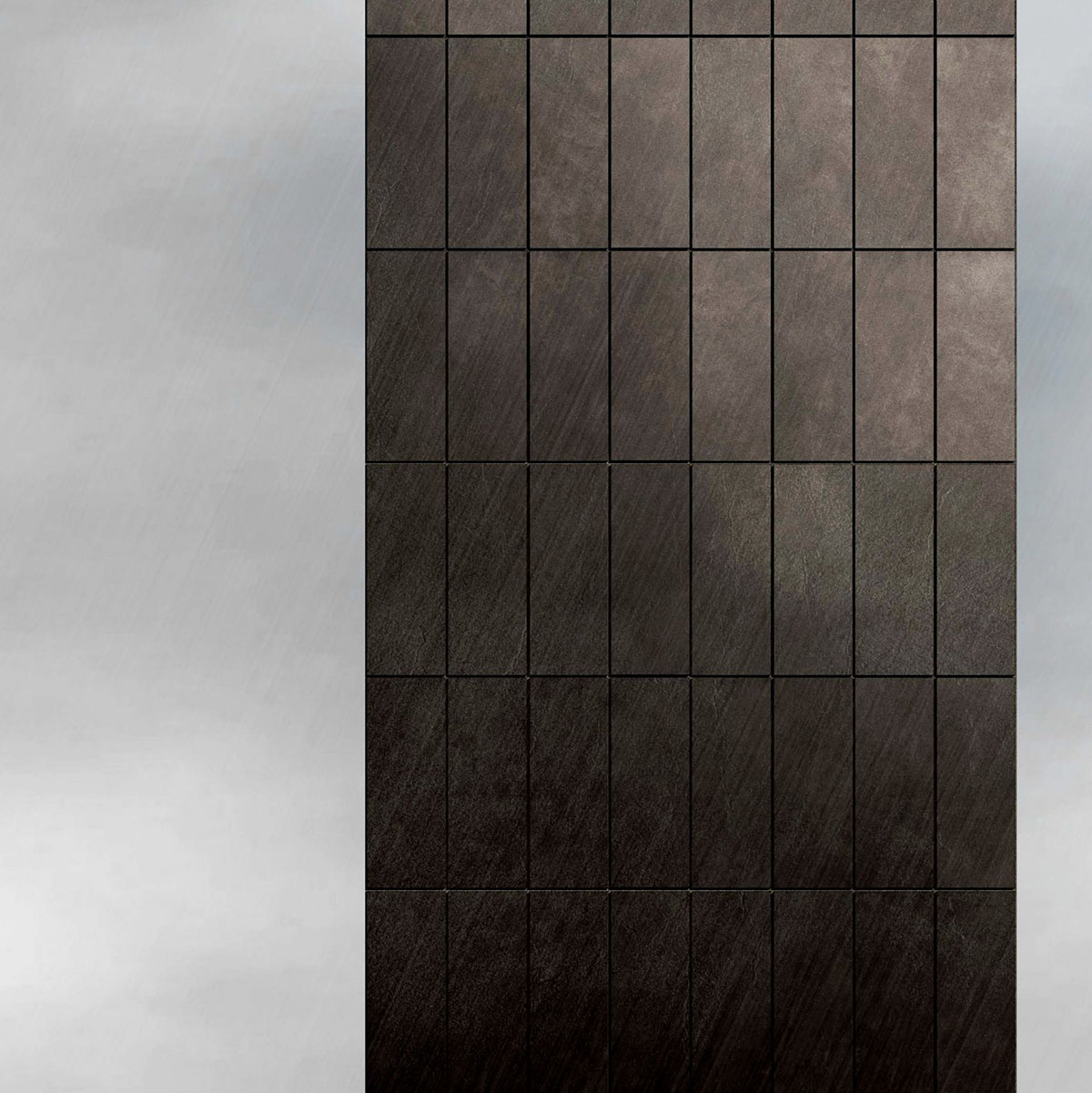
The future of the Grenfell Tower seem that it will be demolished soon, leaving behind the questions of what will be built instead. The future of the project is discussed under the control of the local council of the Royal Borough of Kensington and Chelsea.
In March 2018, a group architects, including Adjaye Associates, Cullinan Studio, Levitt Bernstein, Maccreanor Lavington, Murray John Architects and Penoyre & Prasad, were selected to work with the local community for the building's refurbishment in the hopes of producing “resident-driven” ideas for the area.
In addition, the Lancaster West Residents’ Association has opened a website to showcase design intentions or obligations for a transparent design framework. Although no architect has been selected yet, construction is scheduled to start on site in the summer of 2019.
All images © Darc Studio
> via JAA
